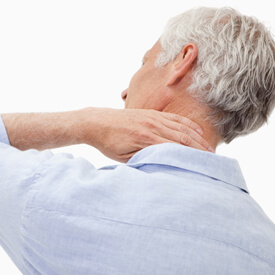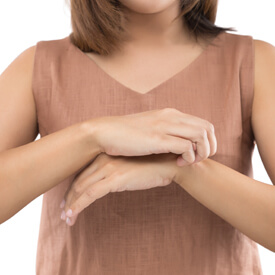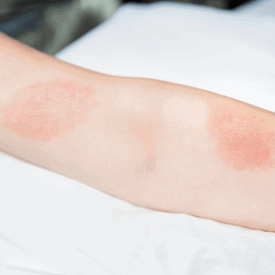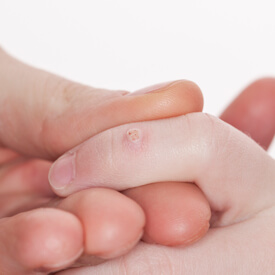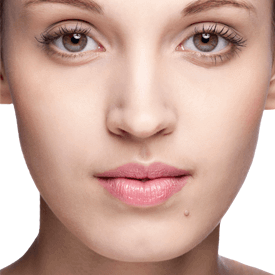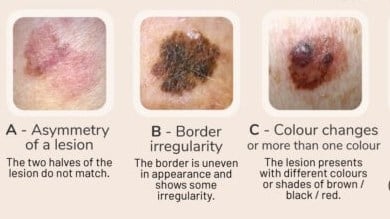Texture improvement, collagen production, minimized wrinkles, and anti-inflammatory properties are benefits of using retinoids!
Eczema in Fort Washington, PA
ABOUT ECZEMA
Eczema refers to a series of skin conditions that are caused by various allergic reactions or, at times, the body’s response to an immune system deficiency. The result can be inflammation of the skin, redness, and itchy patches similar to dermatitis. In many cases, the inflammation itself is dermatitis. This can occur anywhere on your body, including the hands, face, neck, or other areas. Atopic dermatitis is the most common type and is usually the result of an allergic reaction. This condition generally starts in childhood. At the Dermatology and Skin Cancer Institute of Greater Philadelphia, led by Dr. Aradhna Saxena, we will diagnose exactly what is causing the condition so that an accurate treatment plan can be created and carried out.
CAUSES
Doctors aren’t entirely sure what causes eczema, but it’s believed to be triggered by a number of factors. Immune system abnormalities, genetics, the environment, skin irritants, and skin barrier defects are the most common believed causes. Family genetics can also play a role, because certain genes can cause patients to have extremely sensitive skin. A patient with relatives who suffer from asthma or allergies are at a higher risk for developing eczema.
SYMPTOMS
Eczema is most commonly characterized by dry, itchy, or red skin, as well as persistent rashes. In most cases, your skin will begin to itch before a rash appears. Most patients experience patches of skin that are chronically itchy, dry, or thickened. These patches can appear anywhere but mostly occur on the face, neck, hands, or legs. With children, these patches can appear on the inner creases of the knees and elbows. Once the skin is scratched, dry patches and open sores with crust could develop and could become infected. Severe symptoms could include pus-filled blisters or a yellowish to light-brown crust developing over existing eczema patches, which could be a sign of a bacterial infection.
TREATMENT OPTIONS
Eczema can be treated with a variety of over-the-counter or prescription medication and ointments. Hydrocortisone creams and ointments can be used, as well as antihistamines such as Benadryl, to help relieve symptoms. Prescription medications, including steroid creams or immunomodulators, may help those with severe eczema. An oral steroid or corticosteroid may also be prescribed. In extreme cases, ultraviolet light therapy or laser treatment may also be applied to the affected areas. When other alternatives have failed, immunosuppressants may be prescribed, since these drugs suppress the immune system.
SEEK RELIEF TODAY
Whether you have suffered from eczema for years with little to no relief or have just recently noticed an itchy rash and a difference in your skin, there are numerous treatment options available. Employing a multi-level treatment approach that includes prevention, detection, and treatment allows you to not only manage your eczema but also enjoy a significant decrease in symptoms. Seek relief from your eczema-related symptoms today at the Dermatology and Skin Cancer Institute.



